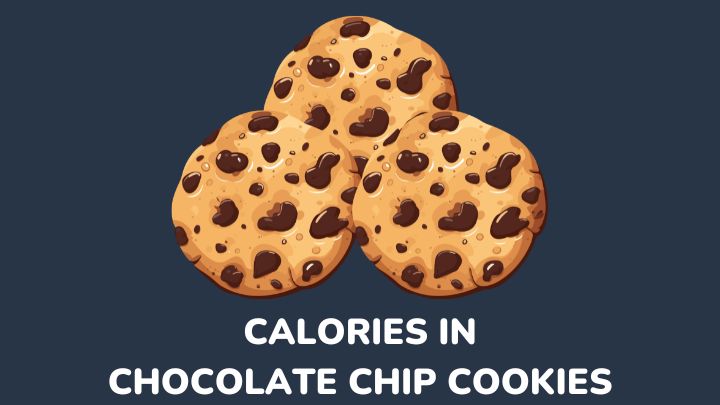How many calories are in chocolate chip cookies? Should these cookies be a part of your diet? Find out in this guide.
Chocolate chip cookies have captured people’s hearts and taste buds worldwide, becoming a beloved staple in bakeries, cafes, and home kitchens.
In this article, you’ll discover the classic ingredients that make these cookies irresistible, identify the factors that affect their calorie counts, and tips for making healthier choices without sacrificing flavor.
More importantly, you’ll get to know the number of calories in your chocolate chip cookies and learn how to enjoy them in moderation.
You should start reading already!

A chocolate chip cookie is a classic American treat loved by people all around the world. It’s a soft, chewy cookie filled with sweet chocolate chips that melt in your mouth with every bite.
These cookies are a staple in bakeries, cafes, and home kitchens, where they’re baked fresh and enjoyed warm.
In bakeries and cafes, you’ll often find trays of freshly baked chocolate chip cookies displayed enticingly, tempting you with their aroma and irresistible sweetness.
At home, families gather around the kitchen to bake batches of these beloved cookies together, creating memories and moments of joy.
Chocolate chip cookies come in various sizes and textures, ranging from thin and crispy to thick and gooey.
Chocolate chip cookies are made from a handful of simple ingredients, each contributing to their delicious flavor and texture.
Firstly, you’ll need flour, which provides structure and bulkiness to the cookies. Next up is butter, a key ingredient that adds richness and moisture. Then comes sugar, white and brown, for sweetness and that perfect chewiness.
Eggs are essential for binding everything together while baking soda or baking powder helps the cookies rise and become fluffy. Added to this are the all-important chocolate chips! They add bursts of chocolatey flavor with every bite.
While these are the basic ingredients, many bakers like to add their twist to the classic recipe. Some might throw in a handful of nuts for extra crunch, while others might opt for oats to add a hint of wholesomeness.
According to the US Department of Agriculture (USDA), a 100 gram serving of rye bread contains:
- Calories: 488
- Total fat: 28 g
- Saturated fat: 14 g
- Cholesterol: 70 mg
- Total carbohydrate: 58 g
- Protein 6 g
- Sodium: 341 mg
- Potassium: 221 mg
It also contains a trace amount of iron, vitamin B6, and magnesium.
Recipe variations play a significant role. Different recipes use varying amounts of sugar, butter, and flour, which directly affects the calorie content.
Some recipes might call for more sugar or butter, resulting in a higher calorie count per cookie.
Additionally, the size of the cookie matters. Larger cookies naturally contain more calories than smaller ones, as they have more ingredients per serving.
So, if you’re watching your calorie intake, opting for smaller cookies can be a smart choice.
Furthermore, additional ingredients like nuts or oats can impact the calorie content. While these ingredients add flavor and texture, they also contribute extra calories.
However, they also bring essential nutrients to the table, making the cookies more satisfying.
When it comes to fats, the type used can make a difference. Butter, with its rich flavor, adds more calories compared to margarine or oil.
So, if you’re looking to reduce the calorie content of your cookies, opting for a lower-fat alternative might be worth considering.
Homemade vs store-bought
Homemade chocolate chip cookies are typically made from scratch, allowing you to control the ingredients and customize the recipe to your liking.
This means you can adjust the amount of sugar and butter, potentially reducing the calorie content per cookie.
On the other hand, store-bought cookies are mass-produced and may contain higher levels of sugar and fats to enhance flavor and shelf life. This can result in a higher calorie count per cookie compared to homemade ones.
Another factor to consider is portion size. Homemade cookies often come in a variety of sizes, depending on how big or small you choose to make them.
Store-bought cookies, however, are usually pre-packaged in standard sizes, which may lead to larger portion sizes and more calories consumed per serving.
In terms of ingredients, homemade cookies offer more flexibility. You can choose to add healthier options like whole wheat flour, oats, or nuts to boost nutritional value.
Store-bought cookies, while convenient, may contain additional additives and preservatives to prolong shelf life, which can impact both taste and nutritional content.
Reduce sugar content
Cut back on the amount of sugar called for in your recipe. You can typically reduce the sugar content by 25-50% without sacrificing taste. Try using alternatives like stevia or honey for a natural sweetness.
Use healthier fats
Instead of using butter or margarine, opt for healthier fats like coconut oil or applesauce. These alternatives can help reduce the overall calorie content of your cookies while adding a hint of flavor.
Choose whole grains
Substitute some or all of the all-purpose flour in your recipe with whole wheat flour or oats. These whole grains add fiber and nutrients, making your cookies more filling and nutritious.
Portion control
Keep your cookie sizes small to moderate. Use a smaller cookie scoop or spoon to portion out the dough, resulting in smaller cookies with fewer calories per serving.
Add nutritious mix-ins
Enhance the nutritional value of your cookies by adding healthy mix-ins like nuts, seeds, or dried fruits. These additions do not only provide extra flavor and texture but also add beneficial nutrients to your cookies.
Watch the chocolate
While chocolate chips are a classic addition to chocolate chip cookies, they can also add extra calories. Consider using mini chocolate chips or reducing the amount of chocolate in your recipe to cut back on calories.
Nutritional benefits and drawbacks
Benefits
Quick energy boost
Chocolate chip cookies provide a quick source of energy, thanks to their carbohydrate content. They can be a convenient snack to fuel your body during busy days.
Mood enhancement
The combination of sugar and chocolate in chocolate chip cookies can trigger the release of serotonin in the brain, leading to feelings of happiness and satisfaction.
Antioxidants from chocolate
Dark chocolate, often used in chocolate chip cookies, contains antioxidants called flavonoids, which may help protect against cell damage and lower the risk of heart disease.
The drawbacks
High in sugar
One of the main drawbacks of chocolate chip cookies is their high sugar content. Excessive sugar intake can lead to weight gain, tooth decay, and an increased risk of chronic diseases like diabesuga
Empty calories
Chocolate chip cookies are often considered empty calories. This means they provide little to no nutritional value beyond their energy content. They lack essential nutrients like vitamins, minerals, and fiber.
High in saturated fat
Traditional chocolate chip cookies are made with butter or margarine, which are high in saturated fat. Overconsumption of saturated fat can raise cholesterol levels and increase the risk of heart disease.
Potential for overeating
Due to their delicious taste and addictive nature, it’s easy to overindulge in chocolate chip cookies, leading to excess calorie intake and potential weight gain.
Healthier alternatives
Oatmeal raisin cookies
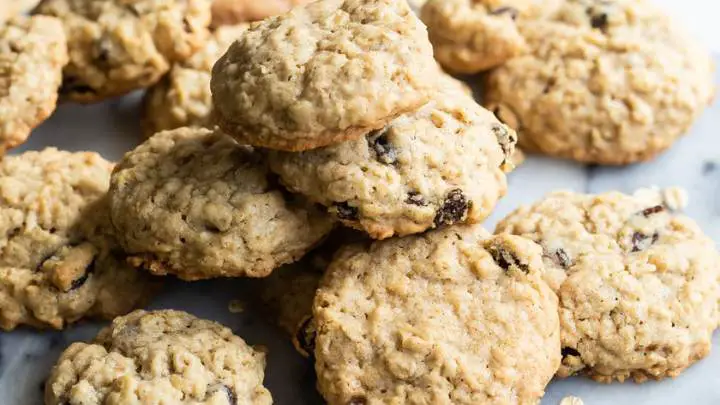
Swap out chocolate chips for raisins and incorporate oats into your cookie dough. Oats add fiber and nutrients, making these cookies a wholesome snack option.
Almond butter cookies
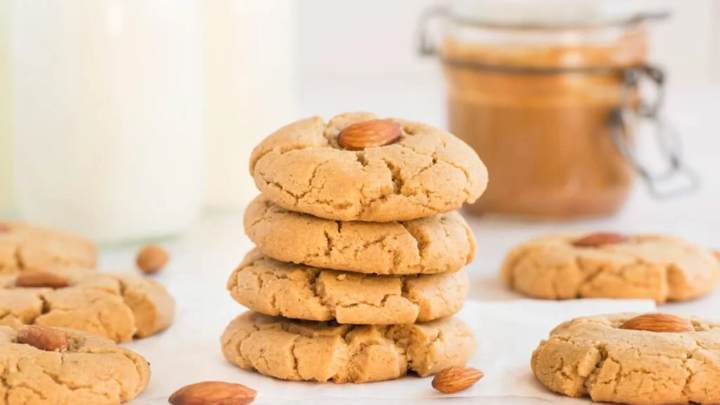
Use almond butter as a base instead of butter or margarine to reduce saturated fat content. Almond butter also adds a delicious nutty flavor and provides healthy fats and protein.
Whole wheat chocolate chip cookies
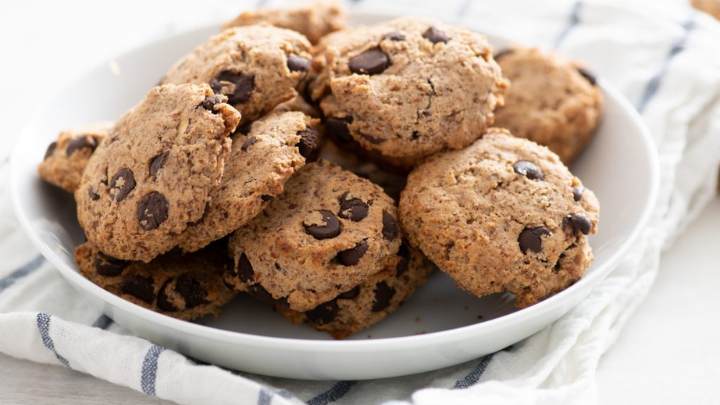
Substitute whole wheat flour for all-purpose flour to increase the fiber and nutrient content of your cookies. You can also use dark chocolate chips for added antioxidants and less sugar.
Banana chocolate chip cookies
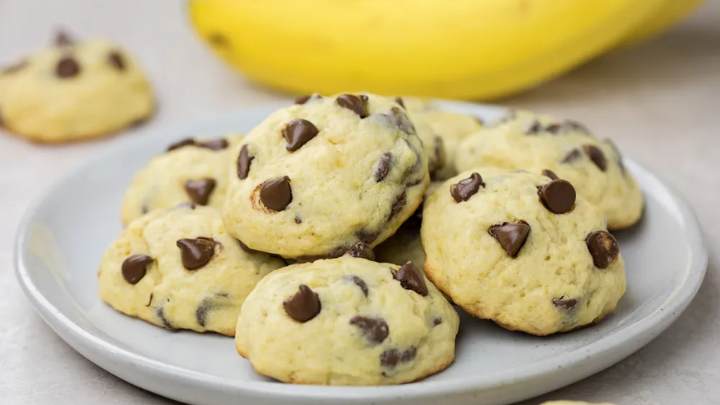
Mash ripe bananas and mix them into your cookie dough to add natural sweetness and moisture. Bananas are rich in potassium and vitamins, making these cookies a nutritious treat.
Coconut flour cookies
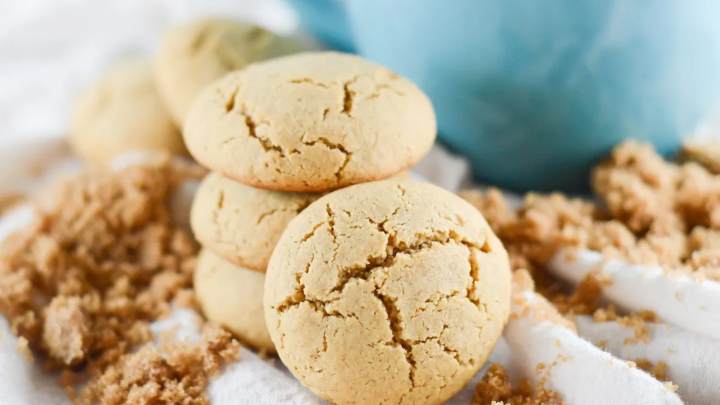
Experiment with coconut flour to create gluten-free and lower-carb chocolate chip cookies. Coconut flour is high in fiber and adds a subtle coconut flavor to your cookies.
Avocado chocolate chip cookies

Replace butter with mashed avocado to reduce saturated fat content while adding creaminess and richness to your cookies. Avocado is packed with healthy fats and vitamins, making it a nutritious alternative.
Protein-packed cookies
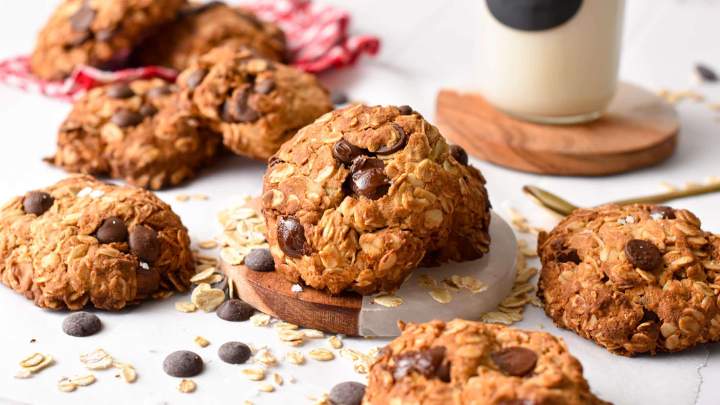
Incorporate protein powder into your cookie dough to boost protein content and make your cookies more satisfying. You can also add nuts or seeds for extra protein and crunch.
Date-sweetened cookies
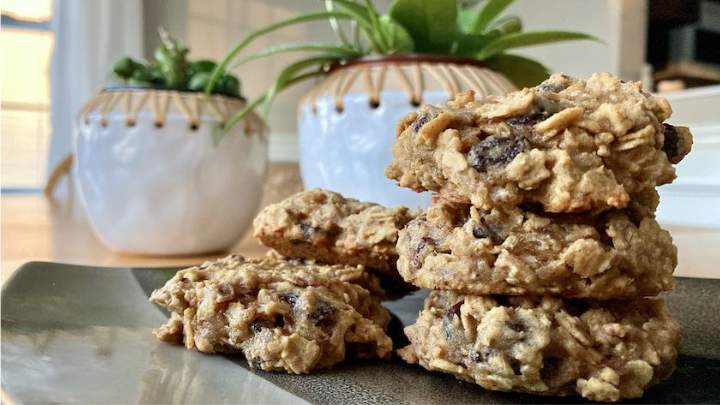
Use chopped dates as a natural sweetener instead of refined sugar. Dates are high in fiber and antioxidants, making them a healthier alternative to sugar.
Chickpea chocolate chip cookies
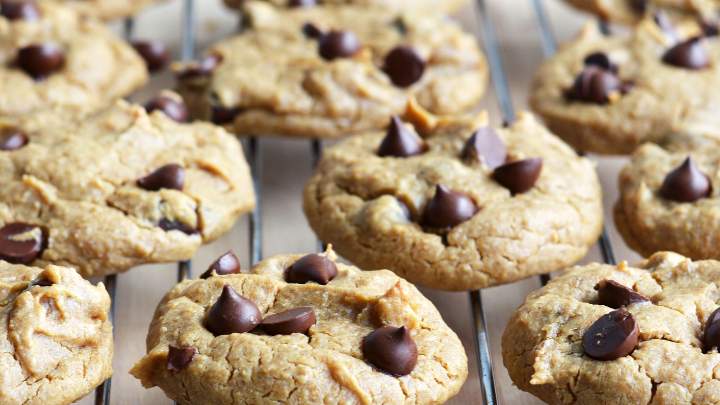
Try using pureed chickpeas in your cookie dough to add protein and fiber while reducing the need for added fats. These cookies have a soft, chewy texture and a subtle nutty flavor.
Quinoa flake cookies

Incorporate quinoa flakes into your cookie dough for added protein and texture. Quinoa flakes are gluten-free and provide a nutritious boost to your cookies.
FAQs
How can you keep cookies from spreading too much?
Chilling the dough before baking and using a higher ratio of flour to fat can help prevent cookies from spreading too much in the oven.
Can you freeze cookie dough?
Yes, you can freeze cookie dough for later use. Simply shape the dough into balls and freeze them on a baking sheet.
Once frozen, transfer the dough balls to a freezer bag and store them for up to three months. When ready to bake, just pop them in the oven straight from the freezer.
What’s the secret to soft and chewy cookies?
Adding a touch of cornstarch to your dough can help keep cookies soft and chewy. Also, slightly underbaking them will result in a softer texture once cooled.
Can you substitute ingredients in a cookie recipe?
Yes, you can experiment with different ingredients like alternative sweeteners, flour, and fats to suit your dietary preferences and needs.
How long do chocolate chip cookies stay fresh?
Properly stored in an airtight container, chocolate chip cookies can stay fresh for up to a week. You can also freeze them for longer storage.
Conclusion
By understanding the number of calories in chocolate chip cookies and making mindful choices, you can still have these cookies without overindulging.
Whether you opt for homemade versions with healthier ingredients or choose to enjoy store-bought ones in moderation, remember that balance is key.
Just remember to listen to your body and prioritize overall health and well-being. With that in mind, you can enjoy these sweet treats guilt-free and continue to create fond memories with every delicious bite.
I’ll also recommend that you learn about the calorie content in a bowl of cereal with milk.
Thanks for reading!
